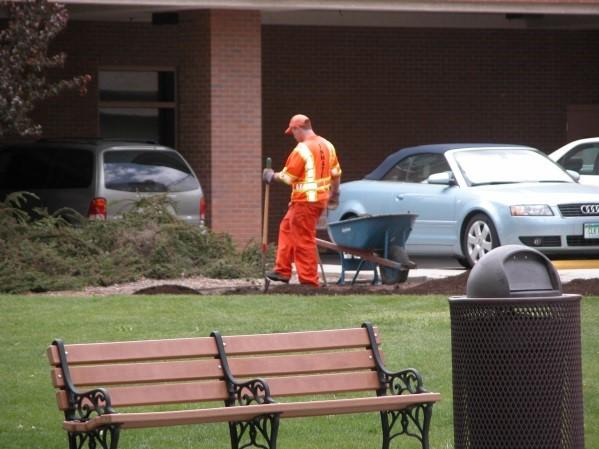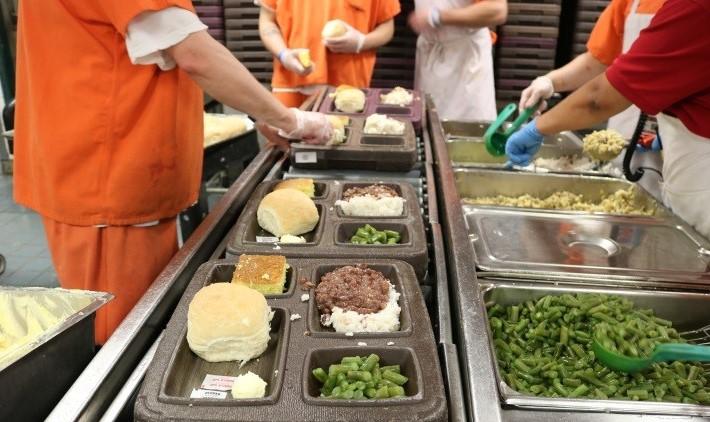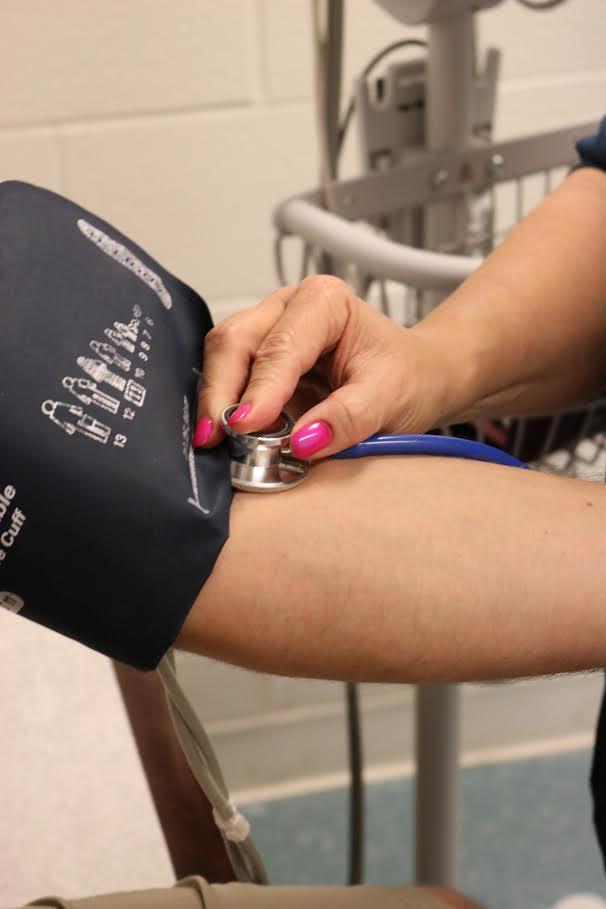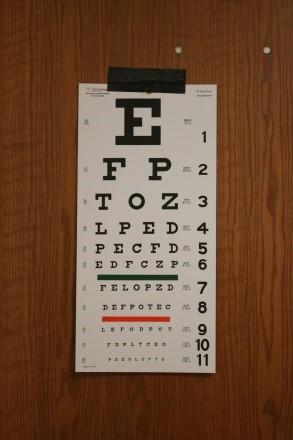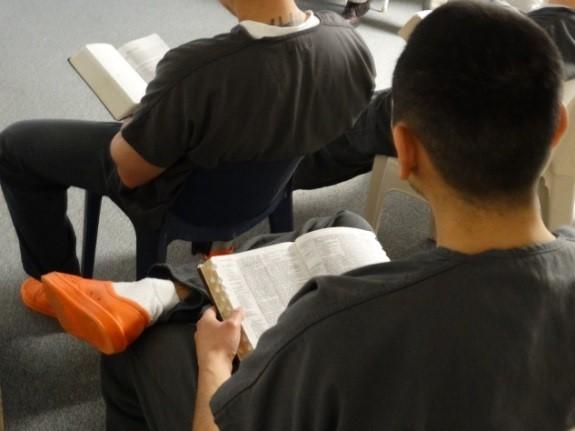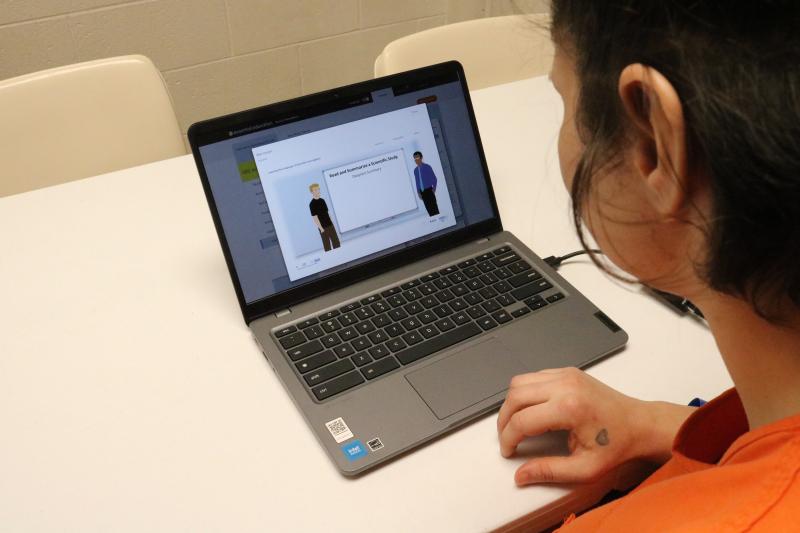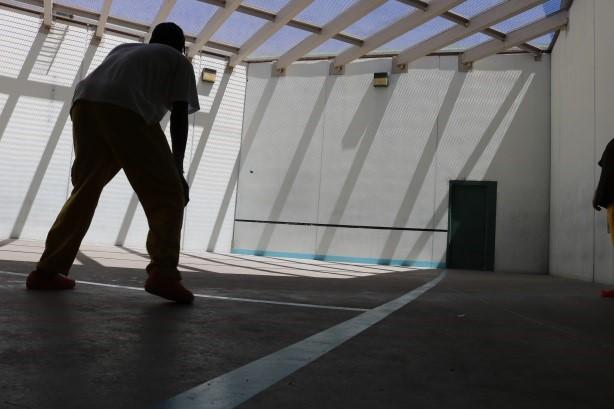Detention Programs
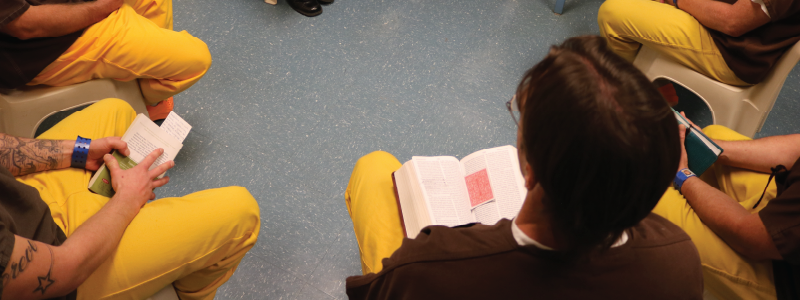
The Mesa County Detention Facility provides many programs and services for inmates.
Approximately 80% of the inmates in the facility are pre-trial, meaning they are still awaiting trial. They are presumed innocent until convicted of the crime(s) they are accused of.
Work opportunities
Inmates may have the opportunity to work in the following:
- Kitchen
- Laundry
- Floor Crew
- Road Crew: Consists only of sentenced inmates that can earn a flagger certification for future work
Inmates earn and learn
- Inmate workers earn reduced time for work completed during their sentence or "good time."
- Inmates learn valuable job skills through on-the-job training that can be utilized upon release from the facility.
Inmate food service
- Inmate Food Service is contracted through Trinity Services Group
- The Detention Facility kitchen provides all inmates' dietary needs in the facility
- All meal plans are designed and approved by a registered dietitian to meet the needs of the inmates
- Including those who require a special diet due to a medical condition or religious beliefs
- Trinity Services Group provides full-time kitchen staff supervising inmate crews who prepare all meals according to the daily meal plan
Inmate medical, mental health, and dental services
Inmate medical, mental health, and dental services are contracted through NaphCare.
The healthcare staff at the Mesa County Detention Facility provides care for all inmates regardless of legal custody status
- Emergency care
- Preventive care
- Chronic care
Medical staff is on duty 24 hours a day, seven days a week.
The medical staff includes:
- Registered Nurses
- Licensed Practical Nurses
- Nurse Practitioners
- Physicians
- Dentists
- Licensed Professional Counselors
- Mental Health Clinicians
- Medical Assistants
Mental health staff are on duty seven days a week.
Preventive and chronic care services are provided by experienced medical staff for:
- Dental care
- Diabetes care
- Radiology
- Laboratory services
Specialty services are provided off-site by community medical specialists when necessary.
Specialty care is coordinated between the on-site medical director and the off-site specialists.
During the booking process, inmates are screened to determine what medical or mental health issues must be addressed immediately.
- Nurses conduct medical health assessments to evaluate:
- The inmate's general health
- Any history of medical problems
Chaplaincy program
The Detention Facility recognizes the need for spiritual guidance and direction within the jail
- Providing pastoral care to inmates who request such services
- Providing services for various faiths:
- Christian
- Jewish
- Muslim
- Pagan
- All other faith groups
The Chaplain's role is a ministry of presence
- To attend to spiritual needs
- To help with crisis management
- To provide opportunities for genuine human contact
The Chaplain position is made possible by the inmate welfare fund and the Mesa County Jail Ministry, a non-profit organization. Visit the Jail Ministry page for more information on the program.
Jail-Based Behavioral Services (JBBS)
Jail-Based Behavioral Services (JBBS) provides substance use treatment to inmates incarcerated in the Detention Facility with a substance use disorder
JBBS provides weekly therapy groups for general population inmates:
- Curriculum is evidence-based
- Inmates receive a certificate of completion upon completion of the curriculum
- Inmates who discharge before completion may attend the same or similar groups in our outpatient facility
The JBBS program provides transitional support as inmates are discharged from the facility
Discharge planning consists of the following:
- Possible referrals to psychiatric services and other outside entities
- Providing resources and transitioning clients in a “warm handoff” manner to services in our outpatient facility
- Tracking client progress for up to a year after discharge from the program.
Services provided by JBBS
- Screening potential clients for Jail Based Behavioral Services
- Safety assessments in terms of suicide and homicide
- Diagnostic assessment upon acceptance to the JBBS program
- Weekly substance use treatment groups
- Individual therapy while incarcerated on a case-by-case basis
- Case management services to help support transitioning back to the community
- Tracking client progress for one year after discharge from the program
In 2019 38% of inmates who engaged in services while incarcerated remained in substance abuse and mental health services.
Other Opportunities
Library
Inmates have access to a library with a wide range of topics
- Law Library
- Fiction
- Religious books
Education
Volunteers offer classes on a variety of subjects:
- Alcoholics Anonymous (AA)
- Anger management
- Continuing education
- Parenting
Exercise yards
Available for the physical and mental well-being of inmates.

